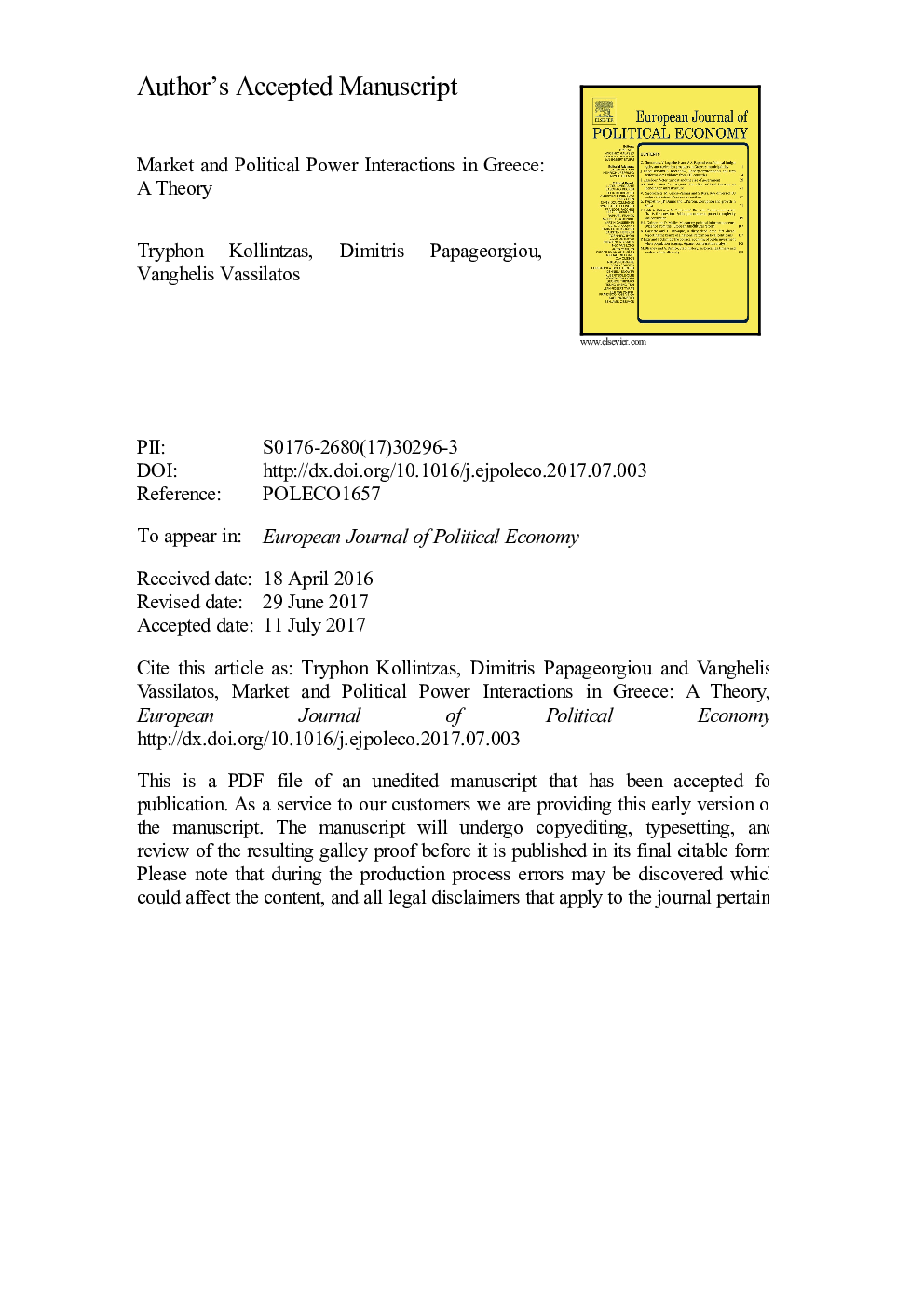| Article ID | Journal | Published Year | Pages | File Type |
|---|---|---|---|---|
| 7351746 | European Journal of Political Economy | 2018 | 49 Pages |
Abstract
In this paper, we develop a neoclassical growth model of market and political power interactions that captures the main features of the economic and political system of Greece and explains the weak economic growth of Greece in the last forty years. The model incorporates the insiders-outsiders labor market structure and the concept of an elite government. Outsiders form a group of workers that supply labor to a competitive private sector. And, insiders form a group of workers that enjoy market power in supplying labor to the public sector and influence the policy decisions of government, including those that affect the development and maintenance of public sector infrastructures. This leads to labor misallocation and inefficient fiscal policies. Thus, even though expanding public sector output has a positive effect on growth, eventually this is counterbalanced by the labor misallocation and inefficient tax policy outcomes leading to a growth reversal phenomenon. The model proposed in this paper may be applicable to other countries that have a similar politicoeconomic structure with Greece, namely other Southern European countries.
Related Topics
Social Sciences and Humanities
Economics, Econometrics and Finance
Economics and Econometrics
Authors
Tryphon Kollintzas, Dimitris Papageorgiou, Vanghelis Vassilatos,
